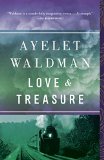Summary | Excerpt | Reviews | Beyond the book | Read-Alikes | Genres & Themes | Author Bio

A Novel
by Mario Vargas Llosa, Edith GrossmanThe latest masterpiece—perceptive, funny, insightful, affecting—from the Nobel Prize–winning author
Nobel laureate Mario Vargas Llosa's newest novel, The Discreet Hero, follows two fascinating characters whose lives are destined to intersect: neat, endearing Felícito Yanaqué, a small businessman in Piura, Peru, who finds himself the victim of blackmail; and Ismael Carrera, a successful owner of an insurance company in Lima, who cooks up a plan to avenge himself against the two lazy sons who want him dead.
Felícito and Ismael are, each in his own way, quiet, discreet rebels: honorable men trying to seize control of their destinies in a social and political climate where all can seem set in stone, predetermined. They are hardly vigilantes, but each is determined to live according to his own personal ideals and desires—which means forcibly rising above the pettiness of their surroundings. The Discreet Hero is also a chance to revisit some of our favorite players from previous Vargas Llosa novels: Sergeant Lituma, Don Rigoberto, Doña Lucrecia, and Fonchito are all here in a prosperous Peru. Vargas Llosa sketches Piura and Lima vividly—and the cities become not merely physical spaces but realms of the imagination populated by his vivid characters.
A novel whose humor and pathos shine through in Edith Grossman's masterly translation, The Discreet Hero is another remarkable achievement from the finest Latin American novelist at work today.
The Discreet Hero is mostly perfectly constructed, and even though it doesn't stand next to Llosa's masterpieces—The War of the End of the World, Conversation in the Cathedral, Aunt Julia and the Scriptwriter—the gradation of the events, the dialog and the way the two stories come together prove that the author is a master storyteller. Translator Edith Grossman is a perfect match for his sober voice. The novel is proof that Nobel-prize winner Mario Vargas Llosa still has stories to tell and still knows how to do it...continued
Full Review
(642 words)
This review is available to non-members for a limited time. For full access,
become a member today.
(Reviewed by Alta Ifland).
 When Peruvian-born writer Mario Vargas Llosa was awarded the Nobel Prize in Literature in 2010, the committee praised "his cartography of structures of power, and his trenchant images of the individual's resistance, revolt, and defeat." Indeed, these themes have been present in his work from his first novel, The Time of the Hero (1963) until The Discreet Hero. The two novels share more than the word "hero" in the title: The Time of the Hero was inspired by Vargas Llosa's traumatic experience at the Leoncio Prado Military Academy in Lima where his father, afraid that he might become a writer, had sent him; likewise, the protagonist in The Discreet Hero sends one of his sons to a military academy in order to teach him discipline, and as a...
When Peruvian-born writer Mario Vargas Llosa was awarded the Nobel Prize in Literature in 2010, the committee praised "his cartography of structures of power, and his trenchant images of the individual's resistance, revolt, and defeat." Indeed, these themes have been present in his work from his first novel, The Time of the Hero (1963) until The Discreet Hero. The two novels share more than the word "hero" in the title: The Time of the Hero was inspired by Vargas Llosa's traumatic experience at the Leoncio Prado Military Academy in Lima where his father, afraid that he might become a writer, had sent him; likewise, the protagonist in The Discreet Hero sends one of his sons to a military academy in order to teach him discipline, and as a...
This "beyond the book" feature is available to non-members for a limited time. Join today for full access.

If you liked The Discreet Hero, try these:

by Yuri Herrera
Published 2024
A major new novel set in nineteenth-century New Orleans by the author of Signs Preceding the End of the World.

by Ayelet Waldman
Published 2015
A spellbinding new novel of contraband masterpieces, tragic love, and the unexpected legacies of forgotten crimes, Ayelet Waldman's Love and Treasure weaves a tale around the fascinating, true history of the Hungarian Gold Train in the Second World War.